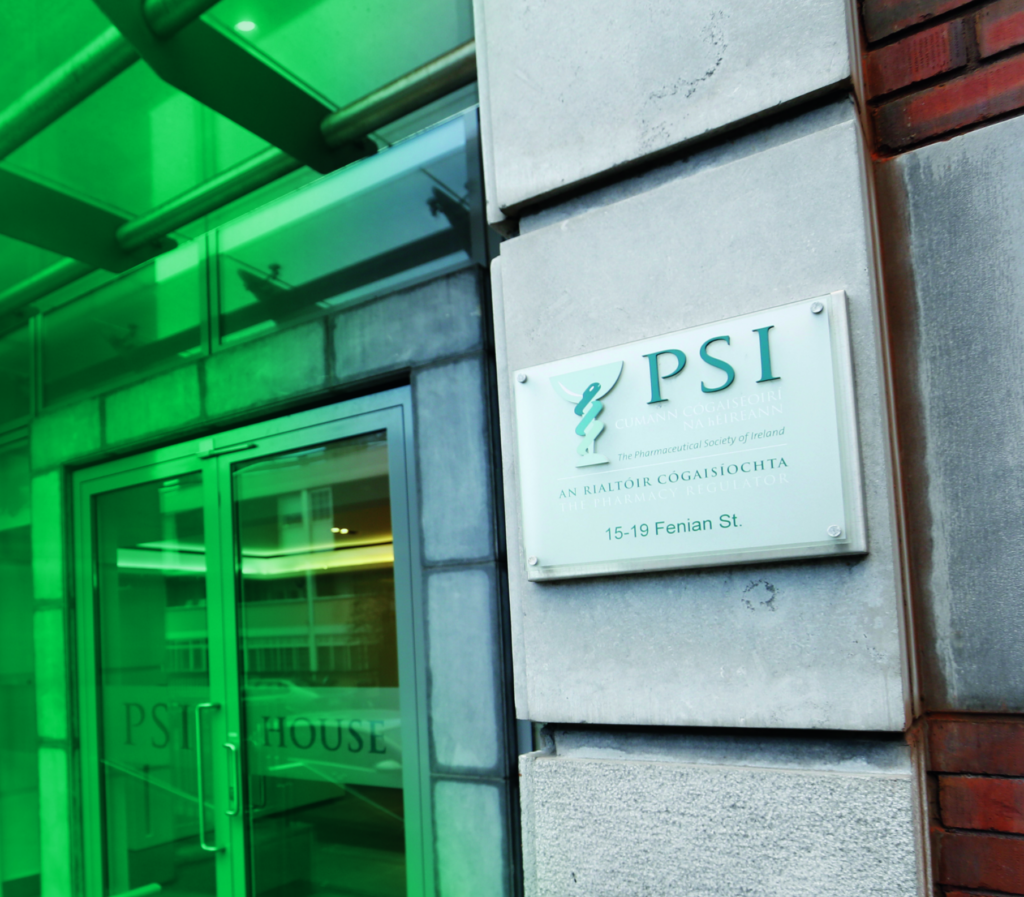Home » PSI Council meeting report, 14 December 2022

The final PSI Council meeting of 2023 took place on 14 December. The Registrar’s Report was delivered by Joanne Kissane who reflected on what had been a busy end of year period for the Regulator. The second annual pharmacist workforce survey had been launched in late November and was due to run until late December. Ms Kissane also noted that the October run of regional roadshows, which took place in Sligo, Limerick, Cork, and Dublin, had been very successful.
Among other activities, the PSI project team is in the process of implementing the revised Third Country Route of access to the PSI Register (TCQR), with the current focus being on developing the adaptation placement component of the new route. Ms Kissane noted that work on implementing a new continuing professional development (CPD) model for pharmaceutical assistants has continued, and a meeting with the Pharmaceutical Assistants Association (PAA) had taken place in October 2023. An implementation plan has been developed, and updates on its implementation will be delivered to the Council during 2024.
The PSI has also attended fortnightly meetings of the Expert Taskforce to Support the Expansion of the Role of Pharmacy. The first recommendation of the Expert Taskforce will allow pharmacists to extend the validity period of certain prescriptions for up to a maximum of 12 months, which Ms Kissane said was very positive. This recommendation is due to be implemented in March 2024, and the PSI has already begun engaging with several key stakeholders, including pharmacists, she said. A pharmacist panel has been established to assist the Regulator, and an interactive workshop to inform the implementation of the first recommendation of the Taskforce has already taken place. Ms Kissane noted there was a high degree of interest among pharmacists in joining the panel, with 104 expressions of interest received by the PSI. Rory O’Donnell warmly welcomed the move, and said pharmacists were more than ready to expand their role in the community and are keen to get started.
The Registrar also sought approval for the 2024 Service Plan (which represents the final year of the extended corporate strategy), and its implementation. Ms Kissane explained that digital transformation would underpin the work of the Regulator and its staff in 2024, and she reiterated that a key focus for the PSI would be supporting the implementation of the Expert Taskforce to Support the Expansion of the Role of Pharmacy. Work on reform of the Pharmacy Act will also be a priority, she added.
Ann McGarry then outlined the recommendation of the Performance and Resources Committee on the PSI Budget for 2024, noting that the financial position of the PSI remains “challenging”, and “ongoing and prudent management of finances is required”. Importantly, she said, reserve-funded projects must deliver a tangible return on investment.
The Service Plan for 2024 contains an action to commence a core funding review by the end of the year as part of the Strategic Financing Review Project. The suggestion that registration fees may have to be revisited by 2027 in order to address the ongoing structural deficit of the PSI was the subject of contentious debate at the meeting. It was noted that fees for Irish-registered pharmacists are high in comparison to their international counterparts. Pharmacists, and especially pharmacy owners, would be dismayed to hear of any increase, said Mr O’Donnell, and other pharmacist members of Council agreed; “Pharmacists in Ireland are paying some of the highest registration fees in the world”.
Mr O’Donnell asked if alternative avenues to fee increases could be explored in order to address any potential financial shortfalls. Ms Kissane noted that since the establishment of the registration fees, there had been two fee reductions, an initial 10% reduction in 2010 of continued registration fees for pharmacists, pharmaceutical assistants and pharmacies, followed by a 5% reduction of first and continued registration fees for pharmacists and pharmacies, in 2014.
The report of the Performance and Resources Committee was then delivered by Council Chair Ann McGarry, who made a number of requests for approval from the Council. A request for approval of the revised reserves policy, which involved an amendment to the Strategic Objectives Reserve from a funding allocation of €200,000 to up to €500,000 annually, was granted by the Council.
Meanwhile, approvals were granted for the management accounts to 30 September 2023, as well as new bank signatories and related motions. A statement on the PSI’s approach to online continued registration and payment methods was also approved by Council, and this contained a stipulation that “paper money” will no longer be accepted as payment for registration fees. Approval of a three-year fixed-term contract post of Advanced Practice Coordinator to be funded from the PSI’s reserves, was also granted.
PSI President Katherine Morrow presented the Special Purposes Committee report for approval and sought a number of other approvals, including of the draft code of conduct for disciplinary committee members, as well as re-appointments to the advisory committees and a number of appointments and re-appointments to the disciplinary committees. A request for approval of the performance appraisal process of the Registrar was greeted with some concerns, as many thought six-monthly reviews too frequent and potentially too time-consuming. The Council requested that the Special Purposes Committee consider the process further at its next meeting.
The Audit and Risk Committee report was then delivered by Geraldine Campbell, who requested approval for the revised data protection and breach management policy and CCTV policy, which was granted by Council.
The Report to Council from the Regulatory and Professional Policy Committee was then outlined by Mr O’Donnell, who then made a brief presentation on the recently completed Mazars review of the CPD model for pharmacists. He noted that the review recommended reducing the CPD cycle down from every five years, in line with international practice, while the practice review element should also be removed. In addition, more targeted review, such as of someone who has come to light via an inspection, should be carried out.
Sean Reilly noted it was unfair that the profession was still none the wiser as to what the new CPD model would actually look like. Mr O’Donnell offered his view that the review simply represents the beginning of the process, and the review had shown that while there are aspects of the existing CPD model that are working well, it had clearly illustrated where improvements and updates can be made.
Following the granting by Council of approval of a change to the TCQR process application fee waiver policy, the meeting closed. The next PSI Council meeting will take place on 7 March 2024.
Danielle Barron

Highlighted Articles